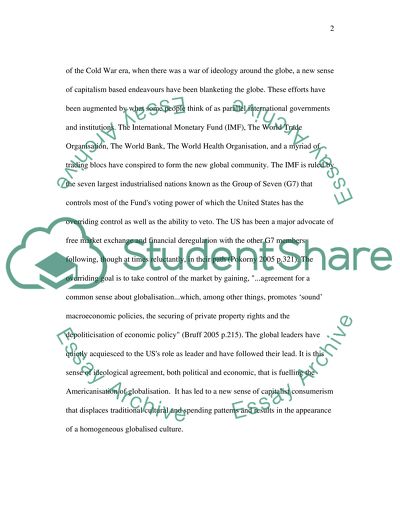Cite this document
(“The Americanisation of Globalisation Essay Example | Topics and Well Written Essays - 2500 words”, n.d.)
The Americanisation of Globalisation Essay Example | Topics and Well Written Essays - 2500 words. Retrieved from https://studentshare.org/sociology/1507441-the-americanisation-of-globalisation
The Americanisation of Globalisation Essay Example | Topics and Well Written Essays - 2500 words. Retrieved from https://studentshare.org/sociology/1507441-the-americanisation-of-globalisation
(The Americanisation of Globalisation Essay Example | Topics and Well Written Essays - 2500 Words)
The Americanisation of Globalisation Essay Example | Topics and Well Written Essays - 2500 Words. https://studentshare.org/sociology/1507441-the-americanisation-of-globalisation.
The Americanisation of Globalisation Essay Example | Topics and Well Written Essays - 2500 Words. https://studentshare.org/sociology/1507441-the-americanisation-of-globalisation.
“The Americanisation of Globalisation Essay Example | Topics and Well Written Essays - 2500 Words”, n.d. https://studentshare.org/sociology/1507441-the-americanisation-of-globalisation.


